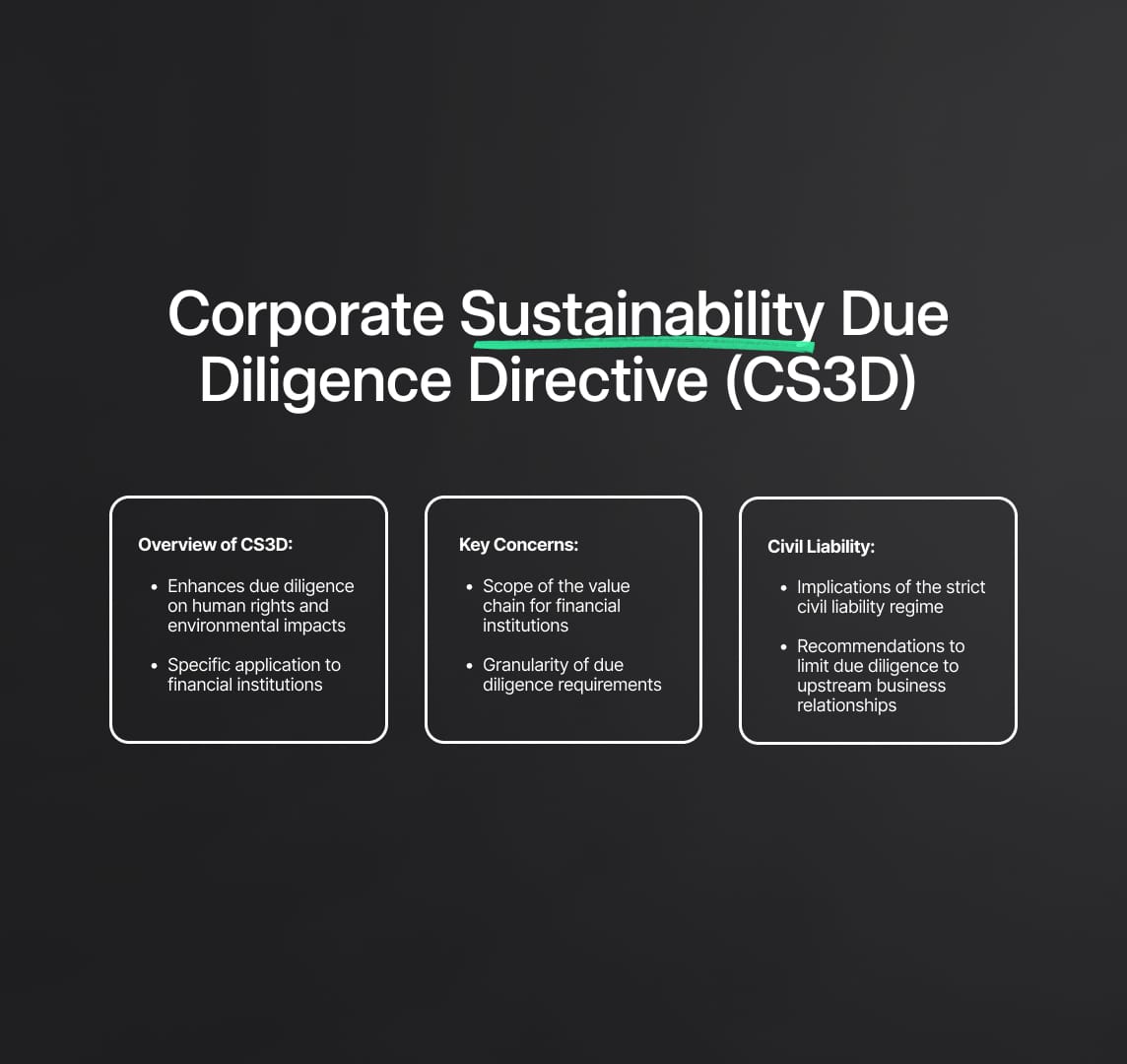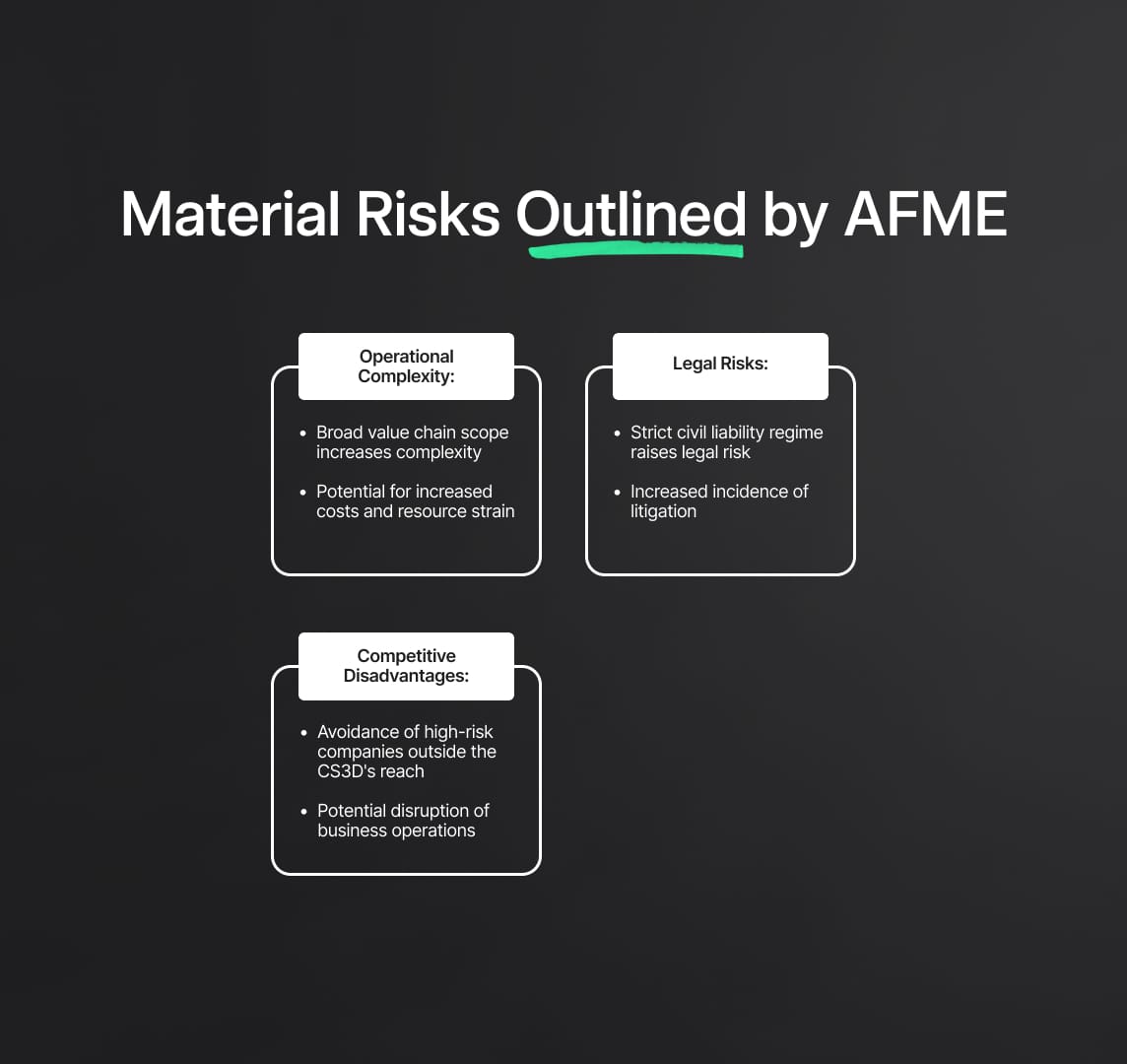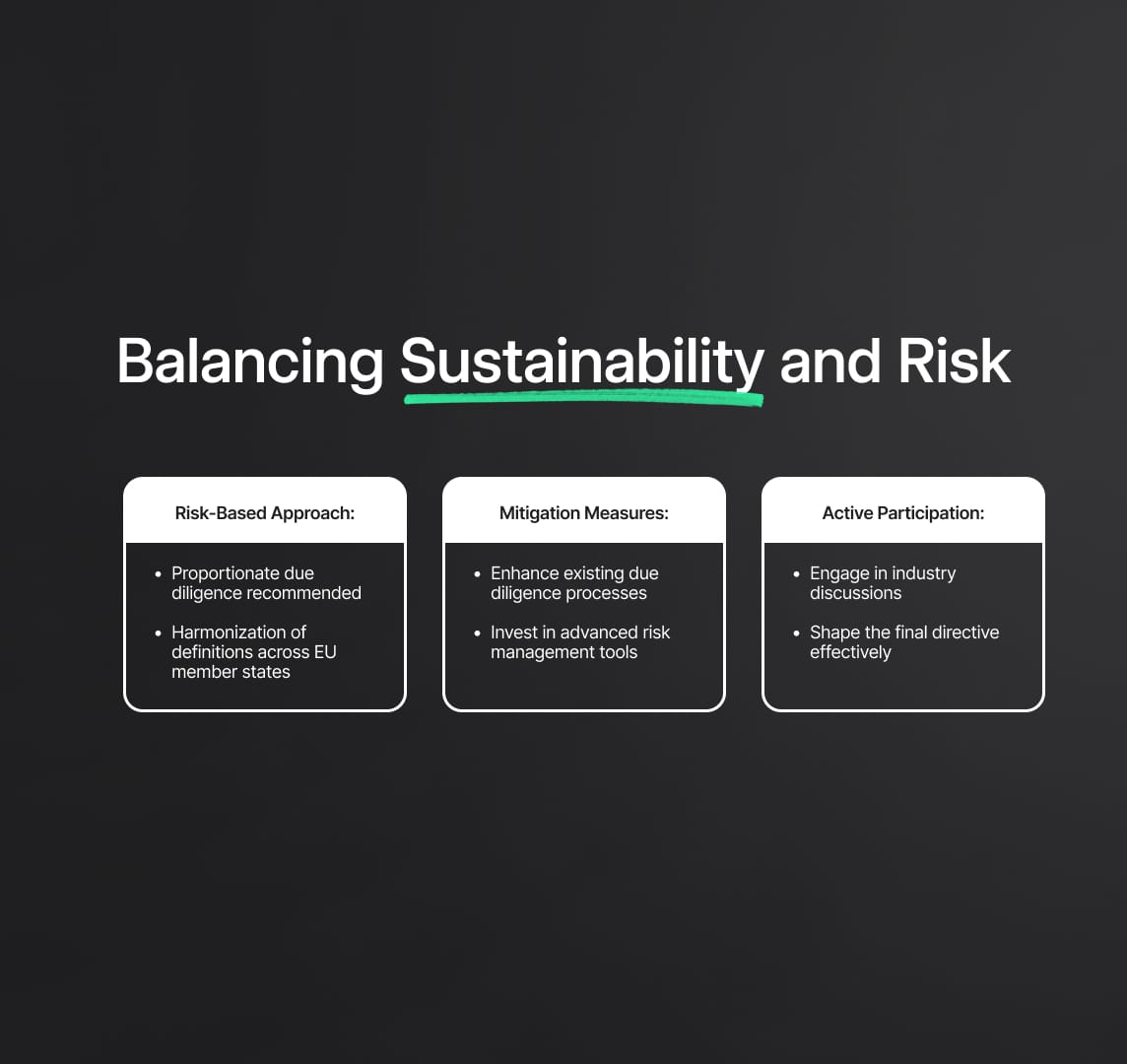Corporate Sustainability Due Diligence Directive (CS3D)
The AFME proposes amendments to the Sustainability Due Diligence Directive, supporting its objectives for financial institutions. They advocate a risk-based approach, addressing concerns on scope, due diligence, and civil liability.

Corporate Sustainability Due Diligence Directive: AFME Outlines Material RIsks
The Association for Financial Markets in Europe (AFME) has proposed amendments to the Corporate Sustainability Due Diligence Directive (CS3D), highlighting potential material risks for financial institutions. The Directive aims to enhance due diligence on human rights and environmental impacts. AFME supports the Directive's objectives and contributes to its development, emphasizing the specific application to financial institutions. The group hopes to ensure the Directive becomes an effective tool for financial institutions to identify material risks and engage with clients. To achieve this, AFME urges for a proportionate, risk-based approach with a clear legal framework. AFME's key concerns include the proposed value chain's scope for financial institutions, the granularity of due diligence requirements, and the implications of the strict civil liability regime. The association recommends limiting due diligence to upstream business relationships and focusing on large corporate clients' activities receiving loan or credit services in the EU.

EU's Corporate Sustainability Due Diligence Directive: Balancing Sustainability and Risk
The recent proposal from the Association for Financial Markets in Europe (AFME) to amend the Corporate Sustainability Due Diligence Directive (CS3D) brings into focus the possible implications for a variety of financial institutions, including banks, investment firms, and credit service providers. These institutions, primarily located within the European Union (EU), will need to consider the proposed changes and prepare for their potential impact.
The CS3D aims to enhance due diligence on human rights and environmental impacts, introducing several potential material risks. The broad value chain scope could necessitate exhaustive due diligence across thousands of diverse companies. This requirement could increase operational complexity, inflate costs, and strain resources. Furthermore, the proposed strict civil liability regime introduces a significant legal risk, potentially increasing the incidence of litigation, as financial institutions could be held responsible for the adverse impacts caused by their clients or trading counterparties.

Moreover, these new requirements might force financial institutions to avoid dealing with companies where risks are harder to assess, creating a competitive advantage for regional competitors outside the CS3D's reach. This scenario could potentially disrupt the institutions' business and challenge their role in financing the transition to more sustainable business models.
To manage these risks, AFME recommends adopting a proportionate, risk-based approach to due diligence. They also urge the harmonization of definitions across EU member states to ensure consistent application of the Directive, reducing the potential for uneven enforcement and legal uncertainties.
As financial institutions gear up to navigate these potential changes, a few measures can be adopted. These include enhancing existing due diligence processes, investing in advanced risk management and monitoring tools, and conducting comprehensive risk assessments of large corporate clients. Furthermore, active participation in industry discussions can enable these institutions to shape the final directive in a practical and effective way.

Read More

Reduce your
compliance risks

